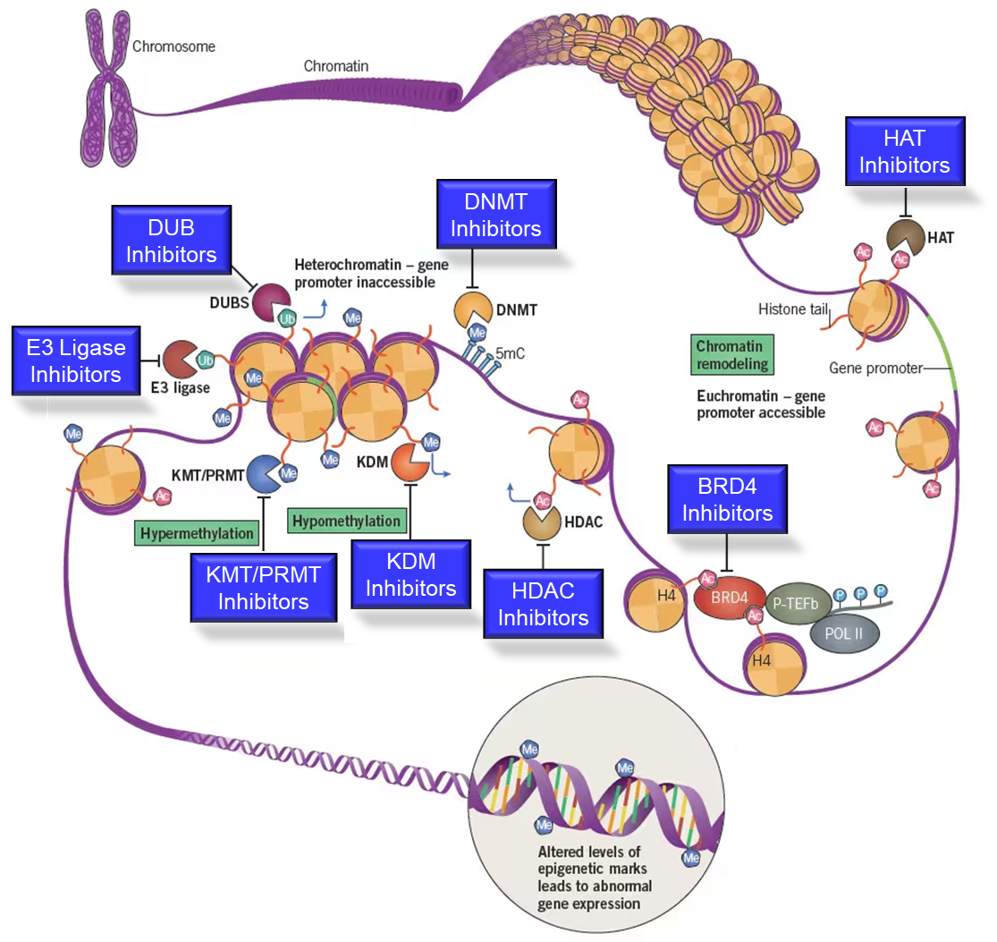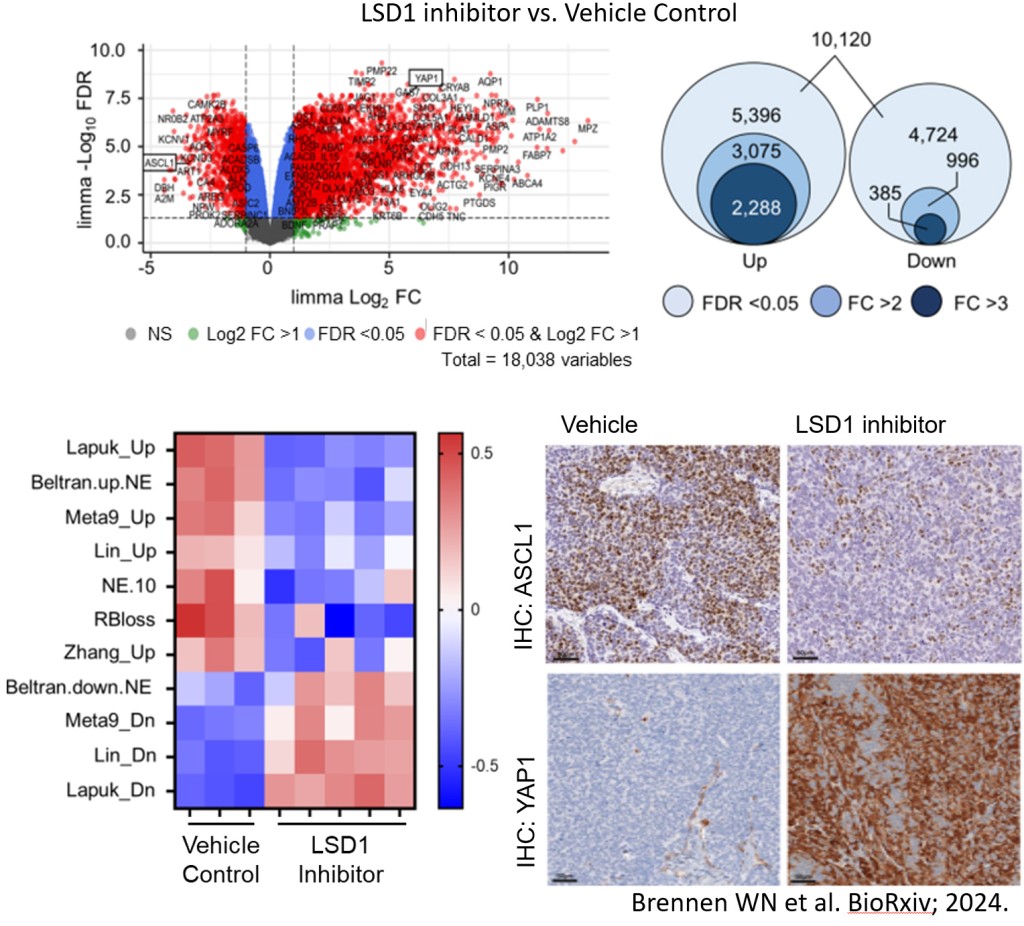Overview | TME | FAP | Epigenetics | PDX
Role of epigenetics in lineage plasticity and treatment resistance
Lineage plasticity has emerged as a mechanism of adaptive resistance to targeted therapy such as androgen receptor (AR) signaling inhibitors leading to a rise in very aggressive and treatment resistant alternative lineage phenotypes such as neuroendocrine prostate cancer (NEPC). Lysine-specific demethylase 1 (LSD1 or KDM1A) is a critical mediator of tumor progression, including lineage plasticity, in prostate cancer. We are working with multiple small molecule LSD1 inhibitors to reverse this process and mechanistically interrogate their ability to suppress the neuronal transcriptional program leading to treatment resistance. LSD1 inhibition also has activity against canonical AR+ prostate cancer tumors, suggesting this may be a viable target with activity against both phenotypes. This has important clinical implications for the growing number of men with late-stage disease who have extensive intra- and inter-tumoral molecular and phenotypic heterogeneity comprised of multiple subtypes frequently co-existing within the same patient and often within the same tumor. LSD1 inhibition may also lead to various induced synthetic lethal vulnerabilities that can be exploited through combination therapy as well as promote anti-tumor immune responses through increased T-cell recruitment and activation that can synergize with immunotherapy.
Epigenetic modifications are essential regulators of gene expression in all cell types. Agents targeting these epigenetic enzymes are primarily thought to work by “turning off” oncogenes or “turning on” tumor suppressors in cancer cells that have been epigenetically activated or silenced, respectively, but they also alter the expression of multi-gene transcriptional programs involved in lineage differentiation and tumor progression. Few studies, however, have explored the role of these drugs in modifying stromal cells in the TME, whether this can reverse their pro-tumorigenic phenotypes, and the impact these changes have on therapeutic responses. Filling this knowledge gap is important as it may provide insight into previously unrecognized combination treatment strategies or synthetic lethality approaches that can be capitalized on for therapeutic benefit.


